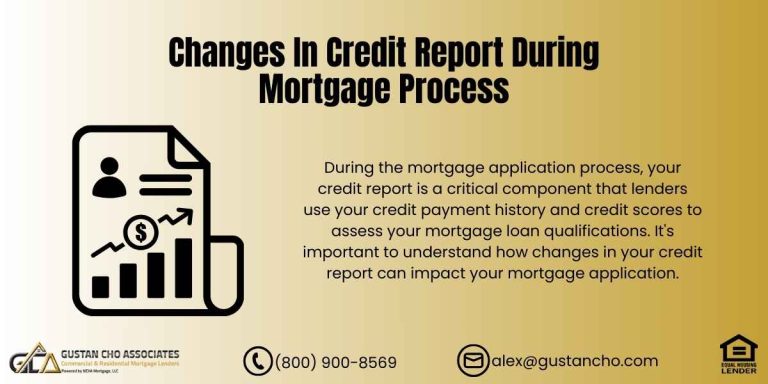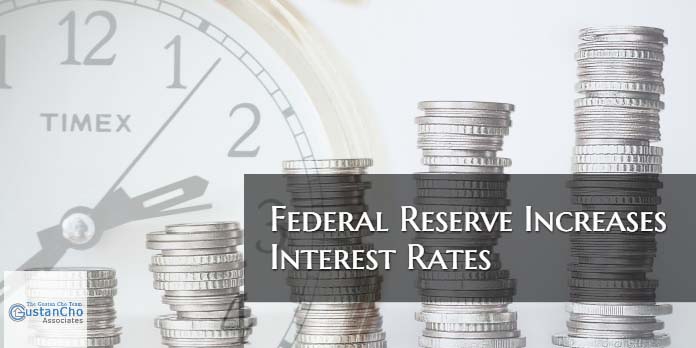In this blog, we will cover and discuss buying condominium versus single-family homes. Are you looking to buy a condo? Condominiums are becoming increasingly popular today than ever before due to many reasons Many seniors who own single-family homes are downsizing to condominiums due to maintenance issues. Millennial homebuyers are finding more interest in buying a condo versus a single-family home. This holds true for those who travel often. In the following paragraphs, we will cover buying condominium versus single-family homes.
Benefits of Buying Condominium Versus Single-Family Homes
Condos are more secure than single-family homes when it is kept vacant. Burglars will think twice about robbing a condominium unit than a single-family home when the homeowner is not around. Dale Elenteny, a senior mortgage loan originator at Gustan Cho Associates says the following about buying condominium versus single-family homes:
Lenders consider condos riskier investments than single-family homes. Therefore, there are pricing adjustments on mortgage rates on condos. The hurdles condo buyers face when applying for a mortgage.
One of the biggest hurdles that has been overcome is HUD now accepts FHA Spot Loans as of 2020. FHA Spot Approvals enables condo buyers in a non-HUD Approved Condo Complex on a case by case basis. FHA Spot Loans were very common many years ago but HUD has discontinued them. Now FHA Spot Loans are back in full force at Gustan Cho Associates.
Thinking About a Condo or a House?
Compare the pros and cons before making your move.
Obstacles Buying Condominium Faced By Mortgage Borrowers
Are you running into any obstacles? Many loan officers are unsure of the true process for purchasing a condo. Gustan Cho Associates are experts in condo financing. We even offer mortgages on non-warrantable condos. John Strange, a senior mortgage loan originator at Gustan Cho Associates says the following about buying condominium versus single-family homes:
A condominium is a private residence located in a residential building or residential community, where individual units are owned privately.
We will dive into alternative and non-QM loan programs later in this article. In this article, we will detail the differences or buying a condo versus a single-family home, the difference between a warrantable and non-warrantable condo, and the steps to apply to purchase a condo. We will cover the hurdles of buying condominium versus single-family homes. Gustan Cho Associates has many different types of loan programs for condo buyers.
What Are Condominiums
Unlike an apartment, many different owners make up the community. With an apartment, one owner rents out all units to the community. Many condo complexes have added amenities such as a swimming pool, workout facility, and laundry.
Condominium complexes usually have homeowner’s association dues. The association dues take care of maintenance, landscaping, and insurance is needed for the property.
You are only required to have “walls in” insurance if you have a mortgage on a condo. The association insures the outside of the complex and you pay this out of your association dues.
Difference Between Buying Condominium versus Single-Family Homes
What is the difference between buying condominium versus single-family homes? With a single-family home, you own your entire parcel of land. You own the land and the structure of the home. You are responsible to ensure the entire dwelling (land and structure) on your own. Some single-family homes also have homeowners’ association dues with their neighborhoods. These are usually called PUDs or planned unit development.
What Are PUDs Versus Condos?
The difference with a PUD versus a condo is with a PUD, you own the land. With a condo, you own the inside of your unit, and the complex owns the land. When purchasing a condo, lenders have additional guidelines they must follow. Non-Warrantable Condos are also considered to be slightly more risky loans which sometimes associated with slightly higher interest rates.
Buying Condominium That Is Classified As Non-Warrantable
What is the term non-warrantable condo mean? By now you have understood that condo financing is slightly tougher to achieve than single-family home financing. Angie Torres, the national operations director at Gustan Cho Associates says the following about buying condominium versus single-family homes:
Fannie Mae and Freddie Mac use the term “warrantable” to describe condominium projects and properties where they will allow mortgage financing. FHA and VA go one step further.
They have an approved list of condominium complexes they will allow financing on. If your complex is not on this list, you may not utilize an FHA or VA loan to purchase his property. If a condo complex does not meet Freddie Mac and Fannie Mae’s warrantable standards, they are considered to be non-warrantable.
Warrantable Condominium Guidelines
We will dive into how to purchase a non-warrantable condo later in this article. A condo complex is usually considered warrantable if:
- More than half of the units are owner-occupied
- Less than 15% of the condo units past due association fees
- The homeowner’s association is not involved in any lawsuits
- Commercial space accounts for 25% or less of the total building square footage
No single person or developer owns more than 10% of the total units within the complex.
Condo vs. Single-Family: Which Is Right for You?
Get expert guidance to match your budget and goals.
FHA and VA Condo Mortgage Guidelines
FHA and VA have a few extra requirements before they will consider a condo complex approved. At least half the condo units must be owner-occupied. For a newly built condominium project, at least 70% of the units must be sold.
Condominium Questionnaire Required by Mortgage Lenders
When purchasing a condominium, you will need to have a condo questionnaire completed by the condominium themselves. This questionnaire will go over all insurances and occupancy ratios as well as many other questions related to the financials of the complex. This will allow the lender to verify if the condo complex is warrantable or non-warrantable. S stated above, if you are using an FHA or VA loan, the condo complex must be on the approved list.
Follow the links below for the approved lists:
Gustan Cho Associates are able to prescreen approved condos in advance for our clients. For many condominium complexes nationwide, we already have the condo questionnaire in a database. Please keep in mind to utilize this database, certain qualifications to apply. This can save our clients time and money when purchasing a condo. Please call Mike Gracz on (800) 900-8569 for more information. You may also email the name of the condo complex to gcho@gustancho.com and we will scrub our database.
Buying Condominium That Is Non-Warrantable
How to purchase a non-warrantable condo? As you already know, Gustan Cho Associates is licensed in 48 states with over 160 wholesale mortgage lenders with a wide range of mortgage products.
Gustan Cho Associates offers mortgages for non-warrantable condos. We also have mortgage products for CONDOTEL PROPERTIES. A non-warrantable condo will usually be reviewed on a case-by-case basis.
The condo questionnaire will allow us to know if we can lend on the property or not. Please call us directly for more questions regarding non-warrantable condos.
Steps In Buying Condominium And Starting The Condo Mortgage Process
What are the next steps to purchasing a condo? The application for purchasing a condo is very similar to purchasing a single-family home. The only real difference is the condo questionnaire. To start the process of buying a condo, please gather the following information:
- Last 60 Days Bank Statements – to source down payment
- Last 30 Days Pay Stubs
- Last Two Years W2’S
- Last Two Years’ Tax Returns
- Driver’s License
- Condo Questionnaire (or information to request a questionnaire)
Buying a Condominium versus a Single-Family Home
Should I buy a condo or a single-family home? Compare costs, lifestyle, and pros and cons to find the best fit for you in 2025. Deciding between a condo and a single-family home is one of the biggest steps when you’re ready to buy. Both choices have upsides and downsides, so the right pick is based on your lifestyle, budget, and plans. In this guide, we’ll cover the main differences so you can pick the type of home that suits you best.
What Is a Condominium?
A condominium, or condo, is a private apartment inside a larger building or community. You own the inside of your unit, while shared areas—like hallways, gardens, gyms, and pools—belong to all owners in the building.
Key Features of Condominiums
- Pools, fitness rooms, clubhouses, and other shared spaces for residents.
- Regular monthly HOA (Homeowners Association) dues for upkeep and management.
- Commonly found in busy city centers or close to popular sights.
- Reduced upkeep: the HOA handles roofing, siding, and landscaping.
What Is a Single-Family Home?
A single-family home stands alone and doesn’t touch other buildings. The owner controls the entire property, from the living space to the yard.
Key Features of Single-Family Homes
- Total ownership of the home and the land it sits on.
- Greater distance from neighbors for privacy and quiet.
- Total freedom to remodel, landscape, or add buildings.
- Owners manage all repairs, from roofs to driveways.
Buying a Condominium: Pros and Cons
Advantages of Buying a Condominium
- Less Upkeep: The HOA cares for grass, roofs, and shared spaces.
- Built-in Perks: Pools and gyms are ready to use, so residents save on private memberships.
- Lower Prices: Condos often cost less than single-family houses in the same area.
- Prime Location: Many are a quick walk or ride to stores, clinics, and buses.
Downsides of Buying a Condo
- Monthly HOA Fees: Regular fees can start high and rise yearly, adding to your budget.
- HOA Rules: Guidelines on renovating, renting your unit, or even keeping pets can limit your options.
- Less Privacy: With neighbors above, below, and beside you, noise and foot traffic can feel crowded.
- Resale Difficulty: Some home shoppers choose standalone houses, so your unit may take longer to sell or could sell for less.
Buying a Standalone Home: Good and Bad
Good Things About a Standalone Home
- More Privacy and Room: Your yard and no shared walls create a calmer, roomier feel.
- No HOA Limits: You can choose how to remodel, add a deck, or turn a room into a rental.
- Resale Advantage: Standalone homes often keep their value better and sell faster.
- Yard Space: A yard provides a spot for pets, BBQs, or kids to play.
Things to Think About
- Full Upkeep: You handle all repairs, the roof, and lawn mowing—all year round.
- Higher Buying Cost: The sticker price on a house is usually higher than that of a condocondo’s.
- No Shared Extras: Pools or gyms you see in some condos are your responsibility to pay for and care for.
- More to Manage: Keeping the house and yard up to snuff takes time and can cost money.
Side-by-Side Cost: Condos vs. Standalone Homes
- Buying Price: Condos usually have a lower upfront cost than single-family homes in the same area.
- Monthly Costs: In a standalone house, you won’t pay monthly HOA dues, but expect higher electric, water, and upkeep bills.
- Condos usually keep these costs down with shared systems and less square footage.
- Insurance: A condo only needs interior coverage, which costs less since the HOA policy protects the building’s exterior.
- If you own a house, you need a full policy, which is pricier.
- Taxes: Condos often have lower property taxes since they sit on smaller lots and have a smaller footprint, lowering the tax base.
Lifestyle Considerations
Buying a Condominium
- It is Great for busy professionals, retirees, or first-time buyers who need low upkeep and fast access to the city.
- Works for anyone who loves shared pools and gyms and lives close to coffee shops and transit.
Buying a Single-Family Home
- Better for families, pet owners, or anyone wanting a fenced yard and quiet nights.
- Perfect if you want to paint the front door, plant an herb garden, or make room for kids and pets to grow.
Resale Value and Long-Term Outlook
- Condos may rise in value more slowly since they have limits on rentals, and buyers tend to prefer yards, but they’re still hot in city markets.
- Single-family homes often give stronger returns, especially as more families seek space in suburbs and rural areas.
Financing a Condo vs. a Single-Family Home
Both condominiums and single-family homes have mortgage options, but lenders treat them differently. For instance, FHA and VA loans require extra approval for a condo project. In contrast, single-family homes typically pass with fewer extra checks.
Your decision between a condo and a single-family home hinges on your lifestyle, budget, and plan to stay. Condos mean shorter to-do lists, a lower sale price, and generally lower upfront costs.
At the same time, single-family homes offer extra rooms, personal space, and a solid long-term investment. Before you move, crunch the numbers, think about the chores you want to handle, and compare the living perks to see what suits you best.
From Condo Living to House Ownership
We’ll help you choose the property type that works for you.
FAQs About Buying a Condo versus a Single-Family Home
Is a Condo Cheaper Than a Single-Family Home?
Condos usually cost less, but watch for monthly HOA fees that add up.
Do Condos End Up Costing More Per Month Than Houses?
Since HOA fees boost your mortgage bill, they can, but you might spend less on upkeep and utilities.
What’s Better For First-Time Buyers, a Condo or a House?
Condos are often a smoother start—lower prices and less upkeep.
Can I Use an FHA Loan to Buy a Condo?
Yes, make sure the condo project has FHA approval.
Do Single-Family homes Increase in Value Faster Than Condos?
Most of the time, yes. Single-family houses tend to gain value more quickly over the long run.
Can I Deduct HOA Fees on My Taxes?
Sorry, HOA fees can’t be deducted when you’re living in the home you own.
Will I Have to Pay for Condo Repairs?
You handle repairs inside your walls. The HOA covers the hallways, roof, and other shared spaces.
Which Has Cheaper Insurance, Condos or Single-Family Homes?
Condos usually have lower insurance costs. The policy only covers the inside of your unit.
Are Condos Tougher to Sell Than Houses?
In some areas, yes. Single-family homes attract more buyers overall.
What’s Better For Families, Condos or Single-Family Homes?
Single-family homes are usually a better fit. They offer more room, privacy, and space for kids to play outside.
Next, you will contact Mike Gracz on (800) 900-8569 and go over your specific qualifications. Mike will answer any questions you have and send you your application link.
From here either Mike or one of the expert loan officers at Gustan Cho Associates will get you pre-approved. As you can see from this article, we are experts in condo financing.
We encourage you to reach out directly to us for any condo related questions. Please call Mike Gracz on (800) 900-8569 for more information or text for faster response. The team at Gustan Cho Associates is available seven days a week, mornings and evenings. We offer top-notch customer service and strive to be up to date on all mortgage guidelines. The majority of our clients have either been denied by another lender or not getting the customer service they deserve. We look forward to helping you with all of your mortgage needs.
Not Sure Between Condo or Single-Family Home?
Let us break down costs, financing, and benefits.










